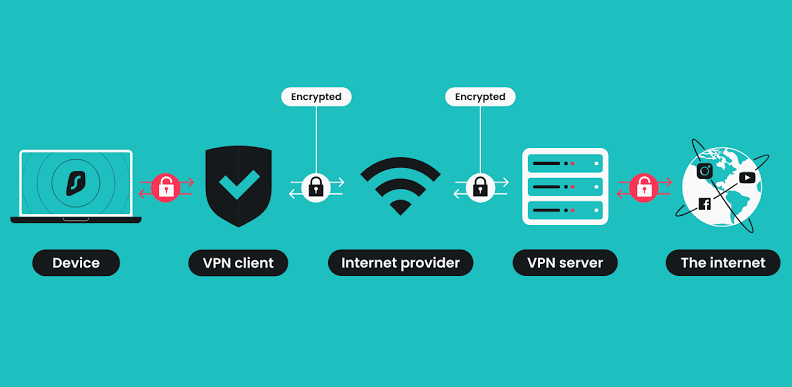A Virtual Private Network, or VPN, is a technology that creates a secure and encrypted connection between a user’s device and the internet. It works by routing internet traffic through a remote server, masking the user’s real IP address and ensuring privacy while browsing. In today’s digital world, where cyber threats and data tracking are common, using a VPN offers numerous advantages for both personal and professional use.
Enhanced Online Privacy
One of the main benefits of a VPN is improved privacy. Without a VPN, your internet service provider, advertisers, and even hackers can track your browsing habits. By hiding your IP address and encrypting data, a VPN makes it much harder for third parties to monitor your online activity.
Key privacy benefits include
- Concealing your real IP address
- Preventing advertisers from tracking browsing patterns
- Protecting sensitive information from cybercriminals
- Reducing the risk of identity theft
This is particularly important for individuals concerned about digital footprints and data harvesting.
Improved Security on Public Wi-Fi
Public Wi-Fi networks, such as those found in cafes, airports, and hotels, are often unsecured and vulnerable to cyberattacks. Hackers can easily intercept data sent over these networks, including passwords and credit card details. A VPN encrypts all data transmissions, making it much harder for attackers to access personal information.
Benefits for public Wi-Fi security include
- Encrypted connections to prevent data theft
- Protection from man-in-the-middle attacks
- Safe access to personal accounts while traveling
- Reduced risk of malware injection
For frequent travelers, a VPN becomes an essential security tool.
Access to Geo-Restricted Content
Many websites and streaming platforms limit access to certain content based on a user’s location. A VPN allows you to bypass these restrictions by connecting through servers in different countries, making it appear as though you are browsing from another location.
Advantages of bypassing geo-blocks include
- Access to region-specific streaming libraries
- Viewing websites blocked in your country
- Staying connected to home content while abroad
- Testing how websites appear in different markets
This is especially useful for travelers and remote workers who need unrestricted access to information and entertainment.
Avoiding Bandwidth Throttling
Internet service providers sometimes intentionally slow down a user’s internet speed when certain activities, like streaming or gaming, consume large amounts of data. A VPN hides your online activities from your provider, reducing the likelihood of bandwidth throttling.
Key benefits of preventing throttling include
- Faster streaming and gaming experiences
- Consistent internet speeds during peak hours
- Improved productivity for remote work
- Better performance for video conferencing
For heavy internet users, this can significantly improve connectivity quality.
Secure Remote Work Access
With the rise of remote work, many companies rely on VPNs to allow employees secure access to internal networks from anywhere. This prevents unauthorized users from accessing sensitive corporate data.
Benefits for remote work security include
- Encrypted access to company systems
- Protection of confidential business files
- Secure collaboration between remote teams
- Compliance with company security policies
Businesses often require VPN use to safeguard operations in a distributed work environment.
Protection Against Online Surveillance
In some regions, governments closely monitor internet activity and impose restrictions on what users can view. A VPN offers a way to maintain digital freedom by encrypting connections and masking browsing activity.
Advantages of avoiding surveillance include
- Safer communication in restrictive environments
- Freedom to research and share information
- Protection for journalists and activists
- Reduced exposure to censorship
For individuals in countries with strict internet laws, a VPN can be a vital tool for open access.
The Growing Importance of VPNs
As cyber threats, data tracking, and online censorship continue to increase, the demand for VPNs is likely to grow. With improved encryption technologies and faster server speeds, VPNs are becoming more accessible to everyday internet users. Choosing a reputable VPN provider ensures a balance between privacy, speed, and security.




Interesting